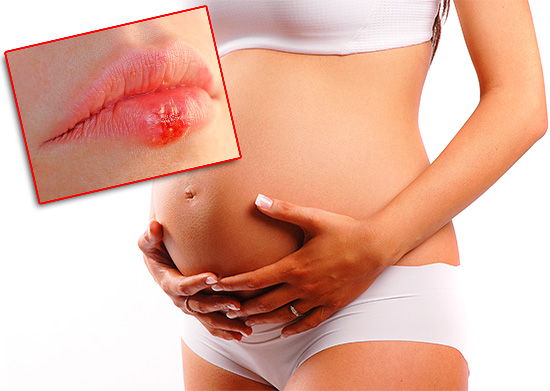Content
- Causes of Urethritis
- Symptoms of Urethritis
- Urethritis treatment
- Types of urethritis
- Chronic urethritis
- Urethritis in women
- Urethritis in men
- Urethritis in children
- Complications after urethritis
- Urethritis Prevention
An inflammatory disease of the urethra (urethra) is urethritis. This is a common disease in the urological field, from which neither women nor men are insured. But not everyone knows the symptoms and treatment of urethritis, and rarely does anyone think about it until the problem touches him personally.
Causes of Urethritis
The causes of the disease are various. It all depends on the causative agent of the disease and its type..
- Infectious urethritis. It is “activated” by bacteria, viruses, ureaplasmas, gonococci, trichomonads, chlamydia (chlamydia), mycoplasmas and other microorganisms. Pathogens are divided into specific (for example, gonococci and gardnerella) and non-specific (streptococcus, Escherichia coli, etc.)
- Non-infectious causes (urethral syndrome). These include: injuries of the urethra, allergies, congestion in the pelvis, narrowing of the urethra. Perhaps with cystoscopy, the passage of a stone. With non-infectious urethritis, microorganisms are activated (for example, staphylococci), due to which non-infectious urethritis develops into non-specific infectious urethritis.
Symptoms of Urethritis
Everyone is affected by urethral diseases. Few people, being in old age, can claim that they are not familiar with the symptoms of this disease. Often the disease is completely painless, without obvious signs, and a person does not know about the presence of the disease. How a disease will affect a person depends on the state of his body and other factors.
Even if a person does not know about the disease and does not feel symptoms, this does not mean at all that he cannot be a carrier of the disease and “reward” others with it. In general, infection occurs through sexual contact. The disease may not appear immediately, but at the end of the incubation period. The first signs of the disease may appear 2-8 days after infection. In rare cases, the incubation period can last several weeks..
The main symptoms of the disease:
- burning
- pain and pain during urination, especially painful at the beginning
- urethral discharge, which is especially profuse in the morning
In bacterial infections, the discharge has an extremely unpleasant odor, plentiful and brownish-green. In men, the urethra is narrower and longer, so they feel the manifestation of the disease earlier and stronger. In women, the disease can go unnoticed for a long time..
Unlike the usual inflammatory processes, urethritis does not cause an increase in body temperature or general weakness of the body.
Urethritis treatment
The first sign of the disease is pain during urination. But endure even a minimal pain is not worth it. The disease can develop into a chronic form or cause a number of other, more unpleasant, diseases (for example, vesiculitis, prostatitis). Therefore, at the first signs, you should contact a urologist and take the prescribed tests.
According to the results of tests and examinations, the doctor will prescribe treatment for you. As a rule, antibacterial drugs are used, the choice of which is diverse. The course of treatment can last several days or a couple of weeks. It all depends on the stage of development of urethritis. Hospitalization of patients with urethritis takes place in exceptional cases – in the presence of severe purulent complications.
Unlike acute urethritis, chronic treatment is not limited to antibacterial drugs only. Here it is additionally necessary to use means of immunotherapy, physiotherapy, and also sometimes it is necessary to introduce special drugs into the urethra.
In case of gonorrhea urethritis (in the case of cell infiltration), a solution of silver nitrate or collargolum is used in the urethra..
Methods of treatment are selected depending on the cause and causative agent of the disease. The type of pathogen is determined using bacterioscopy. In each case, the issue is resolved individually with a specific patient. Based on the results of laboratory tests, the doctor selects medications and treatment that will be effective in certain cases.

Types of urethritis
Urethritis is classified according to various criteria. By the presence of infection, urethritis is infectious (specific, non-specific) and non-infectious. Urethritis is also acute and chronic..
The acute form of the disease is characterized by burning, redness, itching and painful urination. Acute gonorrhea urethritis is distinguished, a distinctive feature of this type of disease is the abundant discharge of pus from the urethra.
Acute urethritis passes into a chronic form if it is not treated. This form of the disease is characterized by purulent discharge, painful urination. After a few weeks, if untreated, the symptoms go away or become less noticeable. Exacerbation of the disease periodically occurs, in the presence of provoking factors (stress, hypothermia, alcohol abuse, indecent sexual life).
Chronic urethritis
Chronic urethritis has all the signs of acute: burning, pain, discharge with an extremely unpleasant odor and color. This type is characterized by periods of exacerbation of the disease and its remission. At the time of exacerbation, symptoms can be pronounced or barely noticeable. During remission, symptoms are absent altogether or are not felt as strongly as during exacerbation.
With each exacerbation, more and more new areas of the urethral mucosa fall under the blow. The disease progresses, and over time its symptoms become more pronounced and painful. It is also worth understanding that in this case organs located near the urethra suffer and new diseases arise: epididymitis (diseases of the appendages of the ovary), prostatitis (inflammation of the prostate gland), cystitis, colliculitis, etc. In the future, this may affect the functioning of the kidneys and the possibility of having children.
With prolonged absence of treatment and repeated urethroscopy, catheterization, the urethra is narrowed. This can lead to a decrease in urine flow during urination. In such cases, only surgery will help.
Urethritis in women
It is necessary to distinguish between cystitis and urethritis. Cystitis is an inflammation of the bladder, and its main symptoms are frequent urination and constant pain in the lower abdomen (not only during urination). In women, cystitis and urethritis are often observed simultaneously. Moreover, the manifestations of one disease can be more clear and vivid than the symptoms of another.
What are the causes of urethritis in the beautiful half of humanity?
- hypothermia
- sexual activity (violent sexual intercourse or promiscuous sexual life)
- sexually transmitted and infectious diseases of the genital tract
- improper diet (abuse of alcohol, sour, spicy, salty)
- gynecological diseases
- urolithiasis disease
- exposure to toxins
- decreased immunity
- medical procedures, surgical interventions
Symptoms of urethritis in women are itching, redness, burning, painful urination, purulent discharge. It is much more difficult to detect the disease in women, therefore, often this disease remains not diagnosed, and therefore not cured.
Treatment takes place at home, and the main way to fight the disease is with antibiotics. Conventionally, there are several points that treat inflammation in women: restoration of the walls of the urethra, microflora in the vagina, and restoration of immunity.
In case of a severe form of the disease or if the disease is caused by an infection, the procedures used are prescribed to restore the walls of the urethra.
To prevent the occurrence of the disease in the future, it is necessary to restore the microflora in the vagina. After all, microorganisms that are the causative agents of the disease can remain here. To identify them, you should contact a gynecologist.
Avoidance of the disease will help its prevention. What to do for prevention:
- avoid hypothermia;
- be choosy about sexual intercourse (do not have a promiscuous sexual life, remember about contraceptives);
- visit the gynecologist at least once every six months to avoid vaginal infections. It would be nice to visit a venereologist.
- avoid constipation and diarrhea, and if they appear, try to get rid of these problems as quickly and efficiently as possible;
- review nutrition, make it balanced and healthy;
- avoid stress and lack of sleep;
- closely monitor the hormonal changes that menopause, disruption of the cycle, childbirth and pregnancy can lead to.
Urethritis in men
In men, urethritis is much more painful and more acute than in women. Infection in 98% occurs through sexual contact. Infection may not occur immediately, but over time, with the slightest weakening of the body.
The causes of the inflammatory process in men:
- hypothermia
- physical exercise
- urolithiasis disease
- promiscuous intercourse with frequent change of partners and without the use of contraceptives
- abuse of alcohol, spicy and salty foods
- stress, weakened immunity
Urethritis is manifested in men with the onset of pain during urination; itching, redness of the skin on the penis or head; purulent or mucous discharge; unpleasant and painful urination.
The above symptoms may not always be present in full, the disease may be asymptomatic. In this case, it is not easy to diagnose the presence of the disease, and therefore, to prescribe treatment. As a result, acute urethritis can develop into a chronic.
In the absence of timely treatment, complications that are more serious are possible. The development of the following diseases is likely: cystitis, hemospermia, orchitis, prostatitis, colliculitis and others.
Urethritis in children
It does not sound sad, but children can also get urethritis, but such cases are rare. The likelihood of this disease is much higher if boys have phimosis and balanoplastitis, and girls have synechia, vulvitis, vulvovaginitis.
Urethritis in children can cause:
- ingestion of a bacterial pathogen on the mucous membrane of the urethra
- neglect of personal hygiene
- urethra injuries
- allergic reactions
- reduced immunity of the child
Symptoms indicating the presence of the disease:
- frequent urination
- complaints of pain and burning during urination
- mucus-like discharge
If one or more symptoms of the disease appear, you need to see a doctor, take a urine test, do a scraping or pass a smear from the urethra. It is better to identify the disease in the initial stage of development, so that it does not develop and does not progress.
For treatment, antibacterial drugs are used to destroy bacteria that were the causative agents of the disease, or eliminate another cause. A urologist should prescribe the medicine, in no case should you arbitrarily prescribe treatment, this will only delay the healing process.
Complications after urethritis
In case of complications of the disease, organs “adjacent” to the urethra are primarily affected. In women, complications are expressed primarily in the form of cystitis and pyelonephritis (as a result of which swelling may occur). If the infection enters the vagina, infection is not excluded and it, as a result of which there is vaginitis, endometritis, adnexitis, infection of the cervix is also possible.
In men, the infection can “hurt” the prostate gland, causing the onset of prostatitis. Kidneys, bladder, seminal vesicles, and testicles may be infected. The worst complication is a narrowing of the urethra, which can lead to a violation of the outflow of urine, and subsequently, renal failure or pyelonephritis.
To avoid complications, it is worth listening to the body, monitor well-being, respond promptly to the slightest changes, if necessary, consult a doctor (urologist, gynecologist) and undergo an examination.
Urethritis Prevention
In order to avoid unpleasant moments associated with urethritis, preventive measures should be taken. These include:
- personal hygiene;
- safe sex life (with one sexual partner, using contraceptives);
- the exclusion of allergenic drugs;
- healthy lifestyle;
- proper linen made from natural fabrics.
Urethritis is an unpleasant disease characterized by unpleasant sensations and possible complications. Therefore, you should protect yourself from it as much as possible, performing all preventive measures and be extremely careful.
If this article helped you, or have your own opinion or experience related to the treatment of urethritis, leave comments at the bottom of the page.














